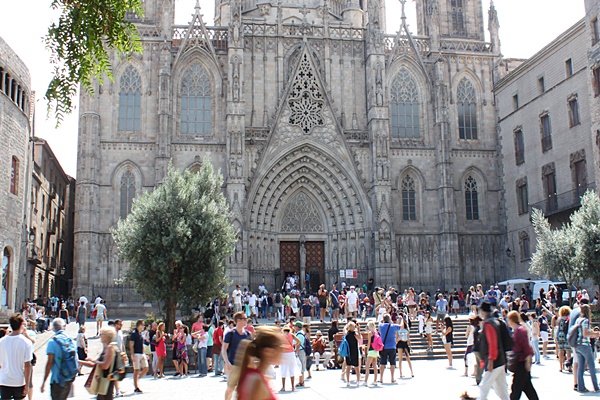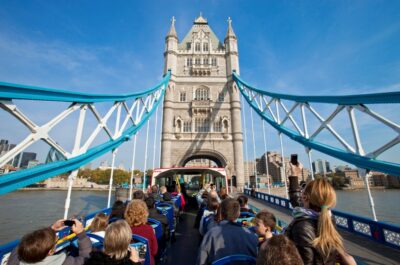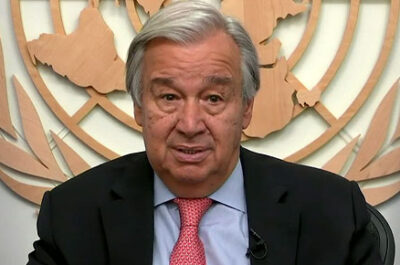If we look at each mode of transportation, the impact of air travel is by far the most significant, as it represents 53% of emissions, yet accounts for only 12% of the total volume of tourist trips.
As world leaders gathered in Glasgow earlier this month for COP26, one thing has been universally agreed upon: a carbon neutral future cannot be achieved without every sector working towards sustainability. Climate change will undoubtedly change how all industries view their own survivability in an uncertain world. Tourism experience providers are perhaps at the forefront of these changes, with not only the environmental impact of travel to consider, but the question of whether and how the future generations will travel and discover the world.
Afterall, transportation is the Achilles heel of the tourism industry in terms of greenhouse gas emissions. It is the second largest source of carbon emissions in the world and the largest in France. According to a UN and World Travel Organisation (WTO) report published in December 2019, tourism alone accounts for nearly 22% of the world’s transportation-related GHG emissions. Meanwhile in France, the world's leading tourist destination, an April 2021 ADEME report shows that nearly 70% of the environmental impact is linked to round trip travel to tourist destinations.
If we look at each mode of transportation, the impact of air travel is by far the most significant, as it represents 53% of emissions, yet accounts for only 12% of the total volume of tourist trips. The most obvious solution is familiar to passengers: where possible, take trains instead of airplanes. and favor collective means of transportation to get to your destination. A single flight from Paris to New York burns 2 tons of CO2, which represents the entirety of targeted annual emissions per French person per year by 2050, set by the COP21. Other solutions include increasing the length of stays, reducing travel frequency, prioritizing local tourism, and choosing greener modes of transport.
As the operator of hop-on hop-off tourist buses in many of Europe’s most visited cities, we feel it is our duty to reflect upon what we can ౼ and must ౼ do to limit our carbon impact while keeping in mind both bottom-line economic development and sustainable targets. This is a balance that will be one of the greatest challenges for our generation, and for those that will follow
We may want to take comfort in the fact that local transportation, once tourists arrive at their destination, accounts for just 6% of GHG emissions across the sector. But our goal should be to decide on how every gram of CO2 counts and to instead work towards meaningful change. At RATP Dev, low emissions is our environmental commitment, beginning in 2017, with the purchase of the first electric and bio NGV buses, operated under our Open Tour brand.
Covid has had a catalytic effect: all our subsidiaries, operating under three different brands, were put on pause for over a year. Open Tour in Paris, The Original Tour in London, Bath Bus Company in Bath and the core of our Sightseeing team had to do everything necessary and possible to reduce costs and remotely prepare for the relaunch of our business in a world where ‘business as usual’ no longer exists. Instead, we consolidated, merging into a single Sightseeing brand launched in June 2021. This move has made us even more determined to accelerate the decarbonization of our Sightseeing fleet and of tourism activities across the board.
One such example is the launch of Tootbus of June this year, a 100% low-emission fleet comprising nine electric buses and six biogas buses. The conception of this new fleet was to rethink how people discover the city. Not everyone is able to sightsee by bike or on foot. So, it makes sense to introduce a green public transportation option that is universally accessible ౼ especially when you consider that electric buses emit six to seven times less CO2 on average than conventional buses. The overall impact remains positive, even when we consider the manufacturing of the buses.
In total, RATP Dev has invested nearly €12 million to decarbonize our fleet. However, this is just the first step to fully making tourism a fully sustainable industry. Both public and private stakeholders, from city governments to engine manufacturers must carefully consider and help with the cost of the transition ౼ after all, the idea is to bring together all the players in our industry.
We also upgraded the entire Tootbus experience to further shrink our carbon impact on a broader scale. For example, we encourage passengers to use their own headsets in order to minimize the distribution of single use earphones. RATP Dev have projects in the works to encourage visitors to take walking tours in addition to bus tours. We are also building stronger, more resilient relationships with the cities we operate in: highlighting both a city’s past, with its iconic historical monuments, but also its modern characteristics, by showcasing local businesses, providing insider tips and addresses ౼ all in an effort to encourage tourism that truly celebrates local heritage. In short, we are working towards a future of tourism that fits with the future of our planet. With this commitment squarely in mind, we participated in the sustainable tourism conference organized by the City of Paris this past July.
One of the biggest takeaways from the past sixteen months where flights have been grounded and bus fleets idle, has been that our world continues to crave mobility and transportation. When communities were forced to stay indoors, we saw firsthand the negative effects that staying put had on many of us. After all, travel is not only about the destination, it is about sharing the experience with others, and growing closer as a result. Travel awakens the possibility of meeting up with loved ones and creating new memories through the discovery of new places.
The return of tourism is a chance for celebration, but it also provides the opening for a new chapter on what sustainable mobility may look like in the years to come. As a leading stakeholder in the tourism experience sector, it will be a return and low-impact travel and experience-centric services that will get us to a greener and meaningful future.
Arnaud Masson is Senior Vice President, Sightseeing Business Line, RATP Dev.
























































































































































































































